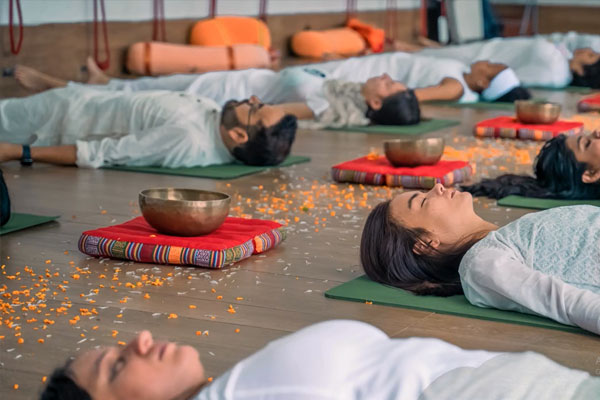How Yoga can Benefit Mental Health
Yoga is a mind-body practice that combines physical postures, breathing exercises, and meditation. It has been shown to have a number of benefits for mental health, including reducing anxiety, depression, and stress. It can also improve sleep, boost mood, and increase self-esteem.
There are a few reasons why yoga can be helpful for mental health. First, the physical postures help to calm the body and mind. The slow, controlled movements and deep breathing help to reduce stress and anxiety.
Second, yoga can help to improve mindfulness. Mindfulness is the practice of paying attention to the present moment without judgment. This can help to reduce anxiety by helping people to become more aware of their thoughts and feelings, and to learn how to cope with them in a healthy way.
Third, yoga can help to improve self-esteem. As people become more mindful of their bodies and minds, they may start to feel better about themselves. This can help to reduce anxiety by reducing feelings of fear and insecurity.
There are many different types of yoga, and some are more effective for mental health than others. Hatha yoga is a good type of yoga for beginners. It is a gentle form of yoga that focuses on the physical postures.
There are also many different yoga poses that can be helpful for mental health. Some of the most effective poses include:
- Child's pose: This pose is a great way to relax the body and mind. To do child's pose, kneel on the floor and then fold forward so that your forehead rests on the ground.
- Downward-facing dog: This pose is a great way to stretch the back and shoulders. To do downward-facing dog, start on your hands and knees and then slowly raise your hips up so that your body forms an inverted V.
- Corpse pose: This pose is a great way to relax the body and mind. To do corpse pose, lie on your back with your legs extended and your arms at your sides.
If you are interested in trying yoga to help with mental health, there are a few things you should keep in mind. First, it is important to find a yoga class that is appropriate for your level of experience. Second, it is important to find a yoga teacher who is experienced in working with people with mental health conditions. Third, it is important to be patient and consistent with your practice. Yoga takes time to work, so it is important to be patient and to practice regularly.
If you are experiencing mental health problems, yoga can be a helpful way to manage your symptoms. By combining physical postures, breathing exercises, and meditation, yoga can help to calm the body and mind, improve mindfulness, and boost self-esteem. If you are interested in trying yoga, there are a few things you should keep in mind, such as finding a yoga class that is appropriate for your level of experience and finding a yoga teacher who is experienced in working with people with mental health problems.
Here are some additional tips for using yoga to help with mental health:
- Start with a short practice and gradually increase the duration as you become more comfortable.
- Find a quiet place where you will not be interrupted.
- Wear comfortable clothing that will not restrict your movement.
- Focus on your breath and let go of any thoughts that come into your mind.
- Listen to your body and stop if you feel any pain.
Yoga can be a great way to reduce anxiety and improve your overall mental health. If you are struggling with mental health problems, talk to your doctor about whether yoga is right for you.







